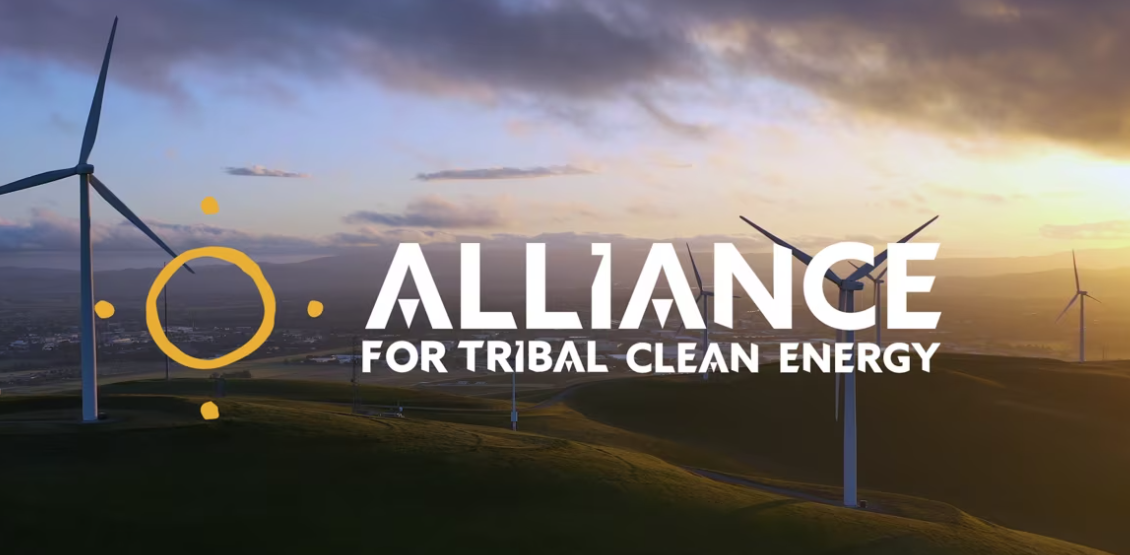
- Details
- By Native News Online Staff
On Monday evening, the Alliance for Tribal Clean Energy led a national coalition of Tribal Nations and organizations in calling on the U.S. Senate to support Senator Catherine Cortez Masto’s (D-NV) Amendment 2816, which would preserve essential funding for the Tribal Energy Loan Guarantee Program (TELGP). In a letter sent to every U.S. Senator—Democrat and Republican alike—the coalition emphasized the amendment’s importance in safeguarding Tribal energy development.
Amendment 2816, co-sponsored by Senators Adam Schiff (D-CA), Brian Schatz (D-HI), Martin Heinrich (D-NM), and Mazie Hirono (D-HI), seeks to strike a proposed rescission that would eliminate funding for TELGP—one of the few federal financing tools tailored specifically for Tribal energy projects.
 Make A Donation Here
Make A Donation Here
In addition to the Alliance for Tribal Clean Energy, the coalition includes strong support from Tribal Nations and organizations across the country, including the Walker River Paiute Tribe, Washoe Tribe of Nevada and California, Moapa Band of Paiute Indians, Cheyenne River Sioux Tribe, Lower Sioux Indian Community, Tlingit and Haida Indian Tribes of Alaska, Tebughna Foundation, and Tribal Energy Alternatives.
“The proposed rescission of TELGP funding would be devastating to Tribal energy self-determination and clean energy progress across Indian Country,” said Cheri Smith, President & CEO of the Alliance for Tribal Clean Energy. “This is one of the only federal loan programs designed specifically for Tribes. Eliminating it would undermine decades of progress toward energy sovereignty.”
Originally authorized in the Energy Policy Act of 2005, the TELGP was significantly expanded by the Inflation Reduction Act in 2022, receiving $75 million in credit subsidy and $20 billion in loan authority. The program enables Tribal Nations to access affordable financing and attract private investment for critical energy infrastructure and renewable energy projects.
Tribal lands contain some of the nation’s most promising renewable energy resources. Yet many Tribal communities lack access to upfront capital, leaving them unable to pursue large-scale energy projects. TELGP helps bridge this gap, enabling Tribes to develop clean energy projects, improve grid reliability, and create energy-sector jobs in their communities.
The coalition warns that cutting TELGP funding would stall long-planned projects, deter private investment in Indian Country, and deepen infrastructure inequities in communities that already face some of the nation’s highest energy burdens.
More Stories Like This
Native News Weekly (August 25, 2024): D.C. BriefsUS Presidents in Their Own Words Concerning American Indians
Merry Christmas 2025
Navajo Man Faces Vehicular Homicide Charge After Child Killed at Navajo Nation Christmas Parade
Next on Native Bidaské: Lumbee Tribal Chairman John Lowery
Help us defend tribal sovereignty.
At Native News Online, our mission is rooted in telling the stories that strengthen sovereignty and uplift Indigenous voices — not just at year’s end, but every single day.
Because of your generosity last year, we were able to keep our reporters on the ground in tribal communities, at national gatherings and in the halls of Congress — covering the issues that matter most to Indian Country: sovereignty, culture, education, health and economic opportunity.
That support sustained us through a tough year in 2025. Now, as we look to the year ahead, we need your help right now to ensure warrior journalism remains strong — reporting that defends tribal sovereignty, amplifies Native truth, and holds power accountable.
 The stakes couldn't be higher. Your support keeps Native voices heard, Native stories told and Native sovereignty defended.
The stakes couldn't be higher. Your support keeps Native voices heard, Native stories told and Native sovereignty defended.
Stand with Warrior Journalism today.
Levi Rickert (Potawatomi), Editor & Publisher

